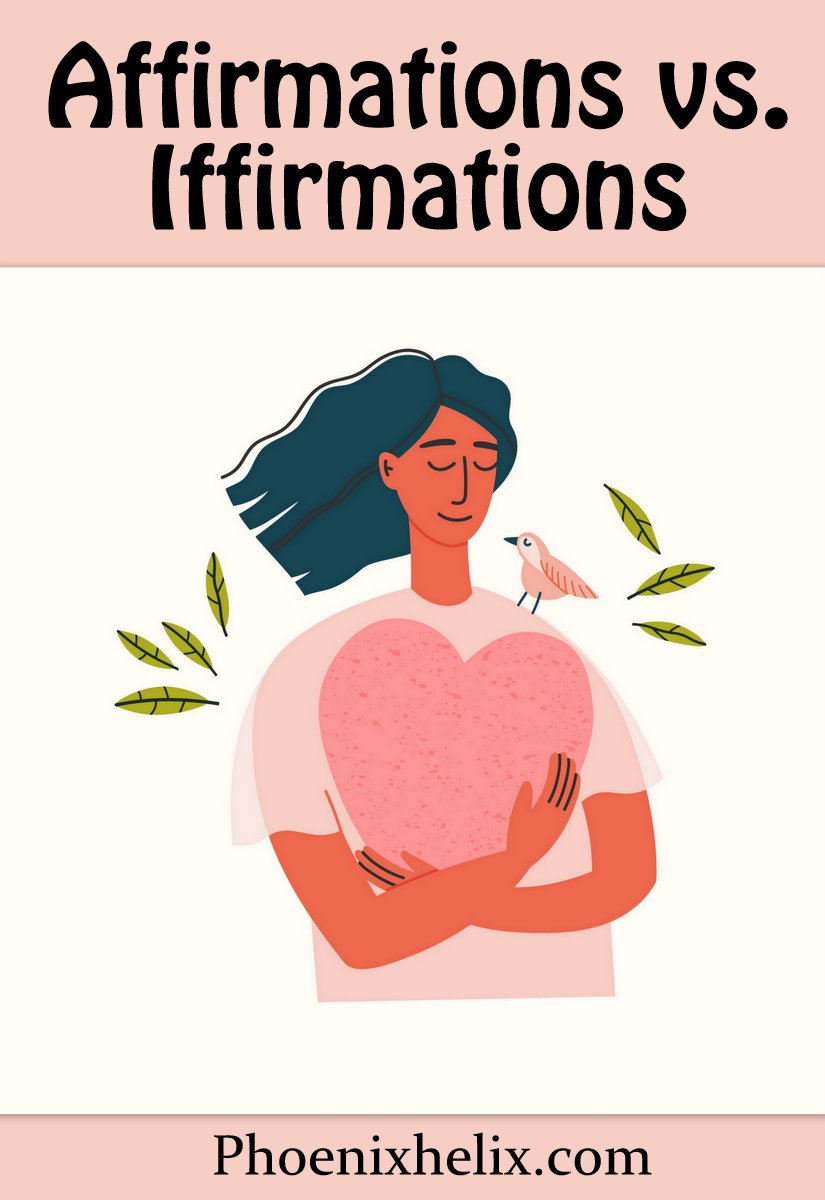
“self-love \, self-luhv \ noun:
The active practice of accepting, caring for, and encouraging oneself.”
~ Dr. Shainna Ali
The Pros & Cons of Affirmations
I’ll be honest. In the past, affirmations never resonated with me. I saw them as a superficial form of positivity that simply glossed over difficult things. And affirmations when done badly do exactly that. But when done well, they can slowly change the way we view ourselves and our place in the world. They are a method of counteracting our brain’s negativity bias by consciously introducing positivity into our minds. The idea is that the more we say an affirmation, the more we believe it, and the more we change not just our outlook but also our behavior in support of that new belief.
Research shows that affirmations can help people cope with life’s challenges, an important skill when living with chronic illness. They boost problem-solving in stressful situations, and they lead to better health choices as well.
There is a risk with affirmations, however. The lower your self-esteem, the more likely they are to backfire. In that circumstance, your brain disagrees so strongly with the affirmation that it strengthens your negative thoughts instead. Has that happened to you? If yes, you’re not alone.
Quieting the Inner Critic
We all have an inner critic, so please don’t feel like there’s something wrong with you if the voice in your head isn’t always kind. Thankfully, there are skills we can learn that help quiet our inner critic and replace it with a more helpful voice instead. Self-compassion is the practice of nurturing the voice of an inner friend.
Our inner critic, ironically, can be an affirmation teacher. It does point out where we want to improve. Take that goal and remove the unkind language. Replace it with an encouraging affirmation instead. For example, if your critic says, “You’re lazy, and you never get anything done,” replace that with, I honor my need to rest and replenish, and I celebrate every accomplishment in my day. Isn’t that a beautiful counter voice? Some affirmation teachers even recommend writing down your negative thoughts as a starting place for brainstorming the affirmations you most need to hear.
Another way to quiet the inner critic is to try affirmation baby steps. If you feel like you’re lying to yourself when you say affirmations, make them a little smaller and easier for your brain to believe. It’s fine to start where you are. Here are some examples: I am open to feeling worthy. I am willing to treat myself better. I celebrate my small achievements. I am building resilience with each challenge I overcome. My immune system wants to support me. I’m learning to become compassionate with myself.
What Are Iffirmations?
They’re my favorite technique for overcoming the mind’s resistance to affirmations. Simply add the words, “What if” before the affirmation. It opens your mind to the possibility. When I do this, my inner critic quiets, my body relaxes, and I feel hopeful. Try it and see if you feel a difference.
What if, I am worthy.
What if, I treat myself with kindness.
What if, I am capable of achieving my goals.
What if, I am strong and resilient.
What if, I am energized.
What if, my immune system is coming back into balance.
What if, I love myself unconditionally.
What if, I am well, in body, mind, and spirit.
Are Affirmations Bad?
Not at all! Like I said in the introduction, for some people they are powerfully positive. In fact, when you become comfortable with Iffirmations, your mind might start to open up to more traditional affirmations too. This is what happened to me. I went from being someone who disliked affirmations, to someone who now incorporates them into my self-care. But don’t feel that has to be your goal. Iffirmations are effective too.
My Book
I wrote a book filled with mind-body techniques written specifically for people with autoimmune disease. This article is excerpted from the Affirmations chapter. As you can see from what I wrote above, there is more than one way to tap a healing mindset. My book encourages you to explore what works for you. Each chapter has four mind-body techniques based on a theme, along with beginner tips and troubleshooting. There are 96 techniques in the book overall. Iffirmations is just one of them.
You May Also Be Interested In
Credit: image at top of page purchased from iStock. Artist: Yelyzaveta Matiushenko.









